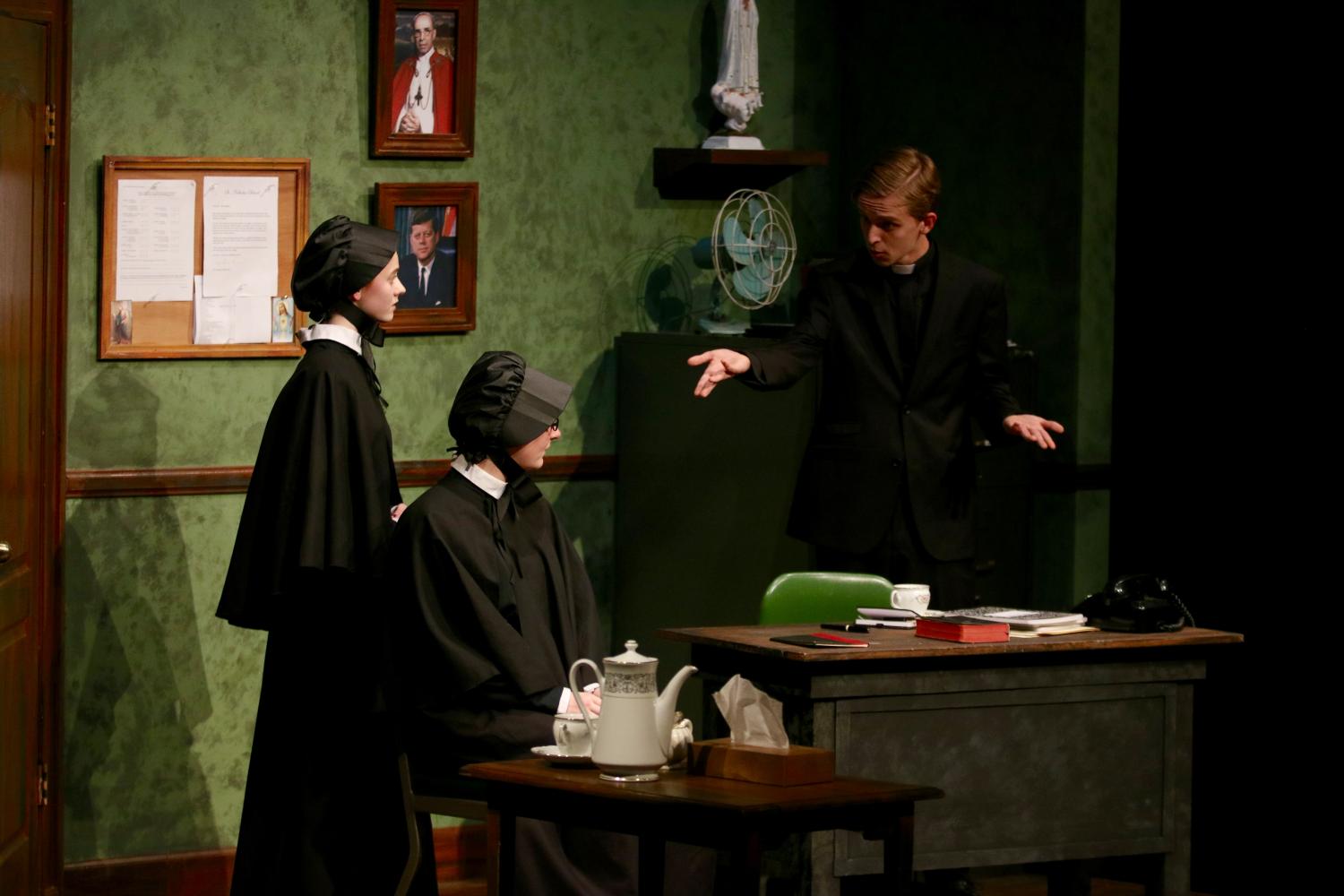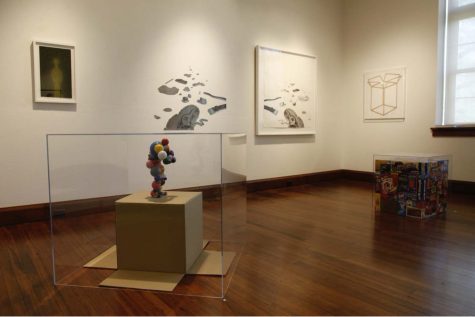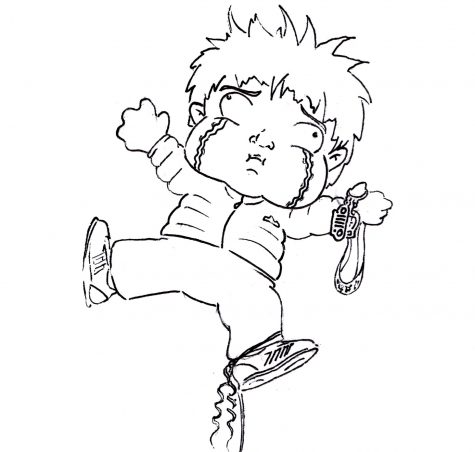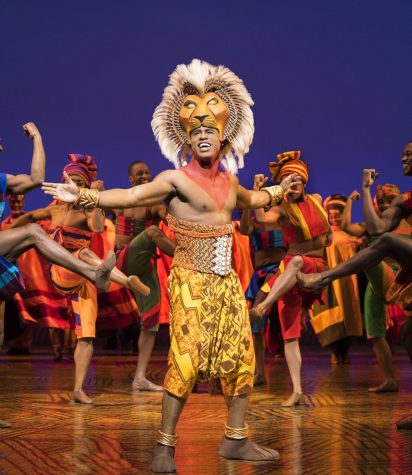Why Doubt?
Nick Kime ’17, Ella Schmidt, ’17, and Kaitlyn Wallace ’17 on stage during the production of Doubt.
Should you live your life in search of truth, or is that even possible? This spring, the cast and crew of Doubt tirelessly worked to present this question to their audience in the Pulitzer and Tony Award winning play. Burroughs’ own theatre teacher Drew Battles played Father Flynn in New York production shortly after the play first closed on Broadway. He said that every actor who plays Father Flynn must choose to what extent their character is guilty or not guilty of inappropriate relations with an altar boy, as the play itself does not provide an answer.
Touching on themes such as the exploitation of power, child abuse in the Church, and skepticism versus faith, the actors had to grapple with how to present these topics in a nonthreatening and understandable manner. “It was necessary at times to put aside our own beliefs and convictions in order to portray the story as authentically as possible,” Kaitlyn Wallace, a junior who played Sister Aloysius, stated. Through this approach, the difficulty surrounding the complex ideas and questions of the play were simplified. These ideas, such as the worth of sacrificing civility and even compassion in order to gain support for a perspective, were also clarified in the minds of the audience, driving home their importance in our disunited country.
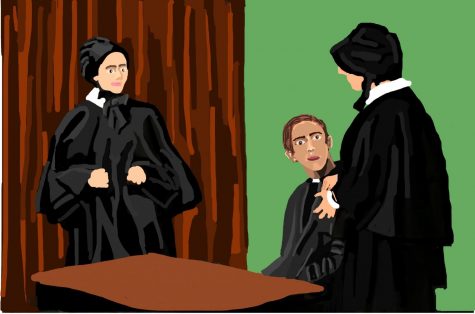
Cartoon of actors on set.
The Burroughs production demanded many weeks of three hour long rehearsals after school. This time was often spent pondering the deeper meanings of the play rather than on staging. Nick Kime, a junior who played Father Flynn, elaborated that this “deep stuff” was what made Doubt so impactful for its audience. In addition, the play required unique preparation. “See, I’m not the biggest expert on the Catholic Church, so I had to do my homework,” Nick earnestly remarked. He described attending mass at the Cathedral Basilica to garner more information about the nature and mannerisms of priests. Nick’s attendance proved pivotal in his understanding of his role and the message of the play.
Doubt presented heavy questions to both its actors and audience. How does certainty fit into our society? In order to understand one another, do we have to moderate our own principles? What is the price of pride, of defending deeply set beliefs? Kaitlyn added that the “divided world in which we live in” made these queries all the more relevant. Thus, Doubt’s patrons walked away with a deeper understanding of the importance of wrestling with doubt and certainty in their own lives.
The modern implications of Doubt also affect the student body. In fact, Mrs. Finley in her parting assembly speech disclosed that this lack of attention towards uncertainty is one of the downfalls of Burroughs students. As we have often experienced success at previous schools, we expect this same success in our current academic, athletic, and social endeavours, shying away from defeat and disappointment in these realms. But what the play strives to propose is that this doubt, this uncertainty of failure, is normal. Utilizing doubt to push oneself towards challenging situations is how people grow. As Father Flynn proclaims in his opening sermon, “Doubt can be a bond as powerful and sustaining as certainty. When you are lost, you are not alone.”
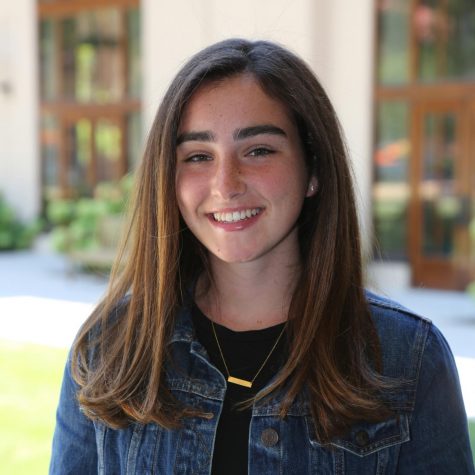
Hallie is one of the Editors-in-Chief and joined the world as a seventh-grader. She has taken on many different positions throughout her time at the world...
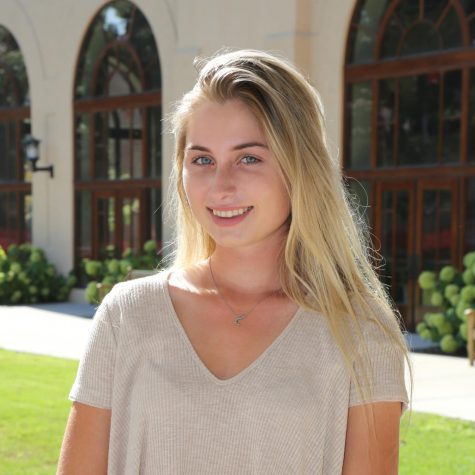
Lucy is the Arts & Entertainment and Satire Editor. She is currently a senior and has been involved with The World since seventh grade. Her previous...
